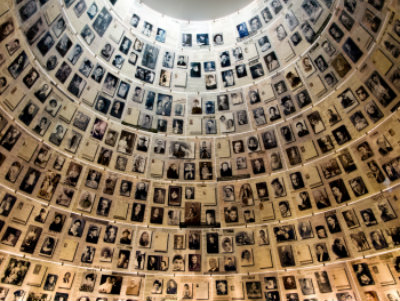
By Joe Godden
Why is it important for social workers to mark Holocaust Memorial Day? The Global Definition of the Social Work Profession includes the statement: “Principles of social justice, human rights and collective responsibility and respect for diversities are central to social work… Social work is based on the inherent worth and dignity of all people as expressed in the United Nations Universal Declaration of Human Rights (1948).”
Since the Holocaust, crimes against humanity have continued, with genocides in Darfur, Rwanda, Cambodia, Bosnia, the Middle East and many other parts of the world.
Working with victims of persecution
Much of the work that social workers do is working with people who have been directly affected by discrimination, including many who work with people who have been victims of violence, persecution and genocide.
And let us not forget that many social workers in the UK have worked in areas of war and conflict and we have members who themselves have directly suffered persecution and have witnessed genocide.
Human rights obligations
Social workers in the UK, who are carrying out their duties as agents of the state, need to do so in a way that is compatible with legal human rights obligations. BASW’s human rights policy states social workers are working on a day-to-day basis with individuals and groups whose human rights are affected by inequality, poverty and discrimination.
Society’s negative portrayal of minorities is a toxic mix, with those who are poor or who have disabilities being vilified.
Not only do individuals suffer as a result of such discrimination; it is the start of a slippery slope to de-humanising individuals and communities.
Dehumanisation and discrimination is what happened under the Nazis, it has happened since in large scale genocides and at an individual level it continues everywhere.
I was particularly struck by the recent BBC Drama The Eichmann Show, which told the story of how the 1961 trial of Nazi Adolf Eichmann came to be televised.
TV director Leo Hurtwitz, who had been blacklisted in the McCarthy era and ground-breaking producer, Milton Fruchtman set out to capture the trial of one of the war’s most notorious Nazis, Adolf Eichmann.
In doing so they faced enormous obstacles and risked their own lives and those of their families.
Learning from survivors
The trial became the world’s first ever global TV event. It was not only a seminal moment for the media but also for people all round the world to learn the shocking reality of the Holocaust from survivors themselves.
For Hurtwitz and Fruchtman the filming was so much more than wanting to capture an event; it became a personal quest to understand how such horror could happen. Fruchtman, brilliantly played by Martin Freeman, came to his own conclusions.
In a very powerful statement at the end of the film he said: “Each of us who ever felt that God has created us better than any other human being has stood on the threshold of where Eichmann once stood. And each of us who has allowed the shape of another person’s nose, or colour of their skin, or the manner in which they worship their God to poison our feelings towards them, have known the loss of reason that led Eichmann to his madness. Well this is how it all began with those who did those things”.
We must do everything we can as individuals and social work professionals to fight discrimination as the consequences are all too familiar.
Holocaust Memorial Day is on 27 January http://hmd.org.uk/


 Bournemouth, Christchurch and Poole
Bournemouth, Christchurch and Poole  Hampshire County Council
Hampshire County Council  Lincolnshire County Council
Lincolnshire County Council  Norfolk County Council
Norfolk County Council  Northamptonshire Children’s Trust
Northamptonshire Children’s Trust  South Gloucestershire Council
South Gloucestershire Council  Wiltshire Council
Wiltshire Council  Wokingham Borough Council
Wokingham Borough Council  Children and young people with SEND are ‘valued and prioritised’ in Wiltshire, find inspectors
Children and young people with SEND are ‘valued and prioritised’ in Wiltshire, find inspectors  How specialist refugee teams benefit young people and social workers
How specialist refugee teams benefit young people and social workers  Podcast: returning to social work after becoming a first-time parent
Podcast: returning to social work after becoming a first-time parent  Podcast: would you work for an inadequate-rated service?
Podcast: would you work for an inadequate-rated service?  Family help: one local authority’s experience of the model
Family help: one local authority’s experience of the model  Workforce Insights – showcasing a selection of the sector’s top recruiters
Workforce Insights – showcasing a selection of the sector’s top recruiters 

 Facebook
Facebook X
X LinkedIn
LinkedIn Instagram
Instagram
Comments are closed.